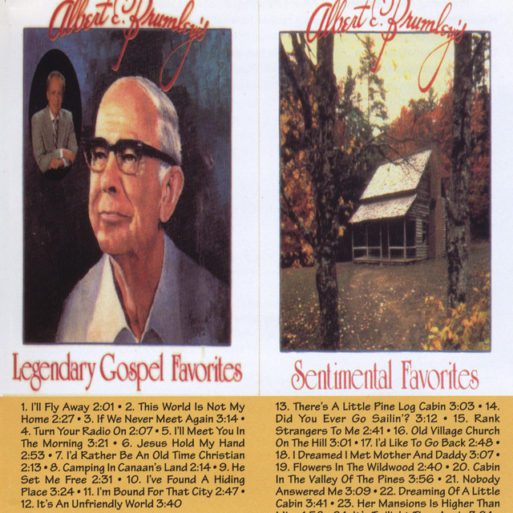 This is black history month and so I have uplifting gospels on my mind. Sometimes, simplicity is everything. When you’re grieving the loss of a loved one, or you’re coping with your own mortality, nothing is more soothing than a handful of clear, uplifting words.
This is black history month and so I have uplifting gospels on my mind. Sometimes, simplicity is everything. When you’re grieving the loss of a loved one, or you’re coping with your own mortality, nothing is more soothing than a handful of clear, uplifting words.
This is the concept behind Albert E. Brumley’s “I’ll Fly Away.” Like other classic gospel songs, the message is straightforward enough for a kid to understand, distilling down all of our fears into a bite-sized chunk of life advice.
“I’ll Fly Away” is hardly Brumley’s first foray into composition. He is known as an architect of the gospel-folk genre, penning more than 800 songs in his lifetime. Many of his hymns are still sung in churches across the United States, largely because his messages are timeless.
When people think of gospel music, they often picture huge choirs singing about God, Jesus and the disciples, but many classic gospel songs of the 1920s and 1930s had a stronger secular influence at their core. These are songs that occasionally drop in a few religious terms, but they are primarily about the human spirit and struggles to overcome hardships.
Brumley said that when he wrote “I’ll Fly Away,” he had been picking cotton in his father’s fields, humming the tune to “The Prisoner’s Song.”
This kind of gospel can be traced back to the transatlantic slave trade. Many of the songs that were sung by enslaved people forced to work in cotton fields became folk legends, passed down through the generations and slowly modified over time. The songs were part of the fabric of Southern American culture, and songwriters like Brumley were heavily influenced by this history. Brumley said that when he wrote “I’ll Fly Away,” he had been picking cotton in his father’s fields, humming the tune to “The Prisoner’s Song.” He tweaked the tune and the words, retaining the theme of a man who is stuck in some form of prison, begging for release.
In this song, the release Brumley refers to is death. In the opening verse, he sings, “Some bright morning when this life is over, I’ll fly away to that home on God’s celestial shore.” This is the only time that Brumley cites God directly in the song.
The song continues with the phrase, “I’ll fly away, oh glory, I’ll fly away in the morning when I die. Hallelujah by and by, I’ll fly away.”
The song continues with the phrase, “I’ll fly away, oh glory, I’ll fly away in the morning when I die. Hallelujah by and by, I’ll fly away.” The song uses imagery of prisons as an analogy for the aspects of life that hold us back, and for the difficulties that make life hard to bear at times.
Whether you’re looking for an uplifting, secular folk song to remind you of the briefness of life, or you want to memorialize a loved one in a church setting, “I’ll Fly Away” is an appropriate choice.
Read the full lyrics for “I’ll Fly Away,” as sung by Alison Krauss, here, or watch the video below:

 Funeral Music: The Uplifting Gospel of “I’ll Fly Away” by Albert E. Brumley
Funeral Music: The Uplifting Gospel of “I’ll Fly Away” by Albert E. Brumley



 Debating Medical Aid in Dying
Debating Medical Aid in Dying
 “Help Me, Helen”
“Help Me, Helen”















